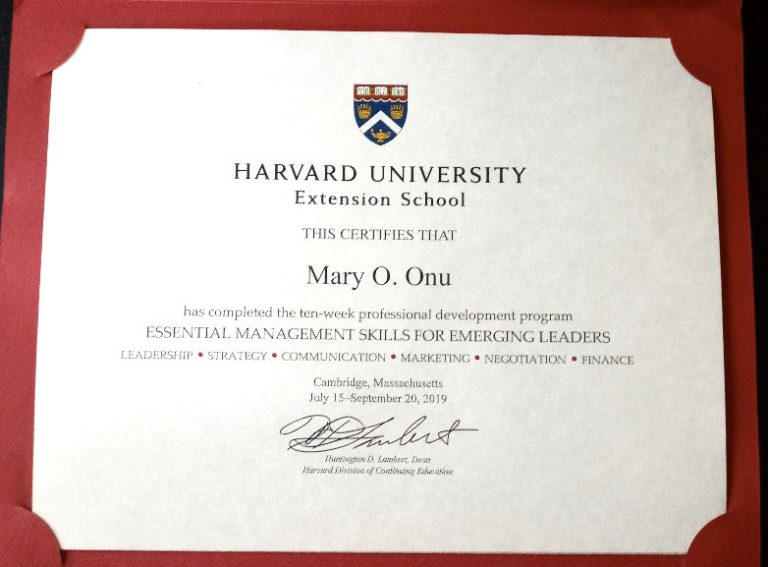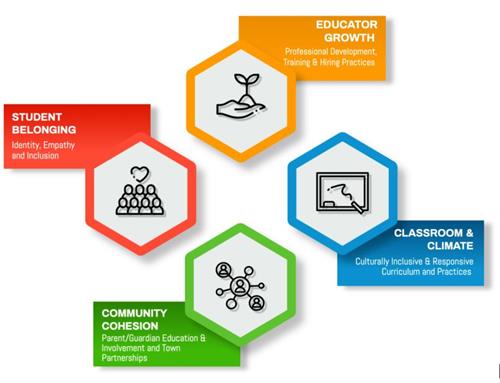Are Some People Born With Leadership Skills?
Yes, some individuals are naturally born with leadership skills, exhibiting qualities like confidence and charisma. Leadership skills can be inherent, enabling certain people to naturally inspire and guide others towards a common goal.
Nature Vs. Nurture: Debunking The Leadership Skills Myth
Nature vs. Nurture: Debunking the Leadership Skills Myth delves into the question of whether some individuals possess innate leadership abilities. Providing a fresh perspective, this insightful post explores the factors that shape leadership skills and challenges the widely held belief that individuals are simply born with such qualities.
Genetic Factors In Leadership
Research has long attempted to unravel the age-old debate of nature versus nurture when it comes to the development of leadership skills. While some argue that leadership skills are simply innate, inherited traits, others believe that they can be shaped and nurtured through environmental factors. However, when looking at the genetic factors in leadership, it becomes apparent that there may be some truth to the notion that leadership skills are, at least partially, predetermined. Numerous studies have found evidence that certain personality traits and characteristics associated with effective leadership are influenced by genes. For instance, a study conducted by the University of Illinois found that specific genetic variations, such as those related to dopamine regulation and emotional intelligence, were associated with leadership potential. These genetic factors contribute to traits like confidence, assertiveness, and the ability to inspire and motivate others – key characteristics of successful leaders.Environmental Factors In Leadership
While genetics may play a role, it is important not to underestimate the significant influence that environmental factors have on the development of leadership skills. The old adage of “nature versus nurture” fails to acknowledge the interactive nature of these influences. In reality, genetics and environment work in tandem to shape an individual’s leadership abilities. One of the most influential environmental factors in leadership development is the presence of role models and mentors. Leaders who have had strong, positive role models in their lives are more likely to possess effective leadership skills. By observing and emulating these mentors, individuals can learn how to navigate complex situations, make decisions, and effectively communicate with others. Additionally, experiences and opportunities for growth and development contribute significantly to leadership skills. Whether it is through volunteer work, extracurricular activities, or professional development programs, individuals gain valuable experience and acquire crucial skills necessary for effective leadership. It is important to note that while genetics and environmental factors play a role in the development of leadership skills, they do not determine an individual’s entire leadership potential. Leadership is a complex and multifaceted trait that can be honed and improved through education, practice, and self-reflection. In conclusion, the age-old debate of nature versus nurture when it comes to leadership skills is not a clear-cut dichotomy. Genetic factors influence certain personality traits associated with leadership, such as confidence and assertiveness, while environmental factors provide the necessary experiences and opportunities for growth.
Credit: www.academia.edu
Characteristics Of Natural Leaders
Natural leaders possess inherent qualities that set them apart. Their charisma, confidence, and ability to inspire others make them stand out in any situation. While some people might be born with these skills, leadership can also be developed through experience and learning.
Leadership is a skill that some individuals seem to possess naturally, setting them apart from others. While it is true that leadership can be developed through experience and training, there are certain characteristics that come more naturally to some people. These characteristics play a crucial role in making them effective leaders.
Confidence And Assertiveness
A natural leader exudes confidence and assertiveness, which inspires trust and motivates others to follow. They possess a deep belief in their abilities and are not afraid to take risks or make difficult decisions. This confidence allows them to tackle challenges head-on, leading their teams with conviction and resilience. They are comfortable taking the lead in any situation and are not afraid to voice their opinions or stand up for what they believe in.
Emotional Intelligence
In addition to confidence, natural leaders possess high levels of emotional intelligence. They have the ability to understand, manage, and express their own emotions, as well as empathize with the emotions of others. This skill helps them to connect with their team members on a deeper level, fostering strong relationships and creating a supportive environment. Natural leaders are skilled at recognizing and addressing their team members’ needs, effectively resolving conflicts, and providing the necessary emotional support.
Charisma And Influence
Charisma and influence are two other distinguishing characteristics of natural leaders. Their magnetic personality and ability to inspire others make them highly influential. They have a natural charm that captivates and motivates those around them, making it easier to rally individuals towards a common goal. Natural leaders are persuasive communicators, able to articulate their vision and ideas in a compelling and convincing manner. Their ability to influence others is fueled by their genuine passion, enthusiasm, and unwavering dedication.
Developing Leadership Skills
Developing leadership skills is not just limited to those who are naturally talented in this area. While some people may possess innate qualities that make them natural-born leaders, it is still possible for anyone to develop and enhance their leadership skills through various means. Education and training, practical experience, and mentorship and coaching are three key avenues through which individuals can cultivate their leadership abilities.
Education And Training
Educational programs and training sessions play a crucial role in developing leadership skills. By enrolling in courses, workshops, or seminars focused on leadership development, individuals can gain knowledge and learn effective strategies to become better leaders. These programs often cover various aspects of leadership, such as communication skills, decision-making, conflict resolution, and team building.
Practical Experience
Practical experience is invaluable when it comes to developing leadership skills. Engaging in real-life situations and taking on leadership roles provides individuals with firsthand experience and ample opportunities to learn and grow. Whether it is leading a team project, volunteering, or participating in community initiatives, these experiences contribute to honing one’s leadership abilities.
Mentorship And Coaching
Mentorship and coaching can greatly accelerate the development of leadership skills. Having a mentor or coach provides guidance, support, and constructive feedback to individuals as they navigate their leadership journey. An experienced mentor or coach can help identify areas for improvement, provide valuable advice, and help individuals build confidence in their leadership capabilities.
In conclusion, developing leadership skills is a lifelong journey that is accessible to anyone willing to put in the effort. Education and training, practical experience, and mentorship and coaching are three fundamental pathways that can help individuals cultivate their leadership abilities. By actively participating in these avenues, aspiring leaders can unlock their full potential and make significant contributions in their personal and professional lives.
Recognizing Potential Leaders
Leadership skills are not solely based on innate traits, but also on personal development and learning. While certain individuals may possess natural abilities, anyone can cultivate and enhance their leadership potential through education, experience, and self-awareness. Recognizing the potential in individuals is essential for fostering effective leaders in any field.
Identifying Natural Traits
Recognizing potential leaders starts with identifying the distinctive natural traits that make them stand out from the crowd. These traits are the foundation upon which effective leadership skills can be built. Keep an eye out for individuals who exhibit confidence, charisma, and ambition. Leaders are often self-assured, inspiring others with their enthusiastic presence and dedication to achieving goals.
Assessing Communication Abilities
Effective communication is a critical aspect of leadership, making it essential to assess the communication abilities of potential leaders. Look for individuals who possess strong verbal and nonverbal communication skills. These individuals are adept at expressing their thoughts and ideas clearly and persuasively. They listen attentively and respond empathetically, inspiring trust and fostering open lines of communication within a team.
Observing Decision-making Skills
Leadership requires making tough decisions in a timely manner. When recognizing potential leaders, pay close attention to their decision-making skills. Natural leaders exhibit an analytical and decisive approach to problem-solving. They consider all relevant factors, evaluate available options, and confidently choose the best course of action. These individuals are not afraid to take calculated risks and shoulder responsibility for the consequences.
The Importance Of Leadership Development Programs
Leadership development programs play a crucial role in enhancing leadership skills, as not everyone is born with innate leadership abilities. These programs provide individuals with the necessary tools, knowledge, and opportunities to develop and hone their leadership skills, enabling them to inspire and guide others effectively.
Equipping Future Leaders
Leadership development programs play a critical role in equipping individuals with the necessary skills and knowledge to become effective leaders. Such programs provide aspiring leaders with the tools they need to navigate the complexities of leadership successfully. Through a combination of training, mentoring, and practical experiences, these programs prepare individuals to tackle the challenges they will face on their leadership journey.
Cultivating Leadership Qualities
A central aspect of leadership development programs is the cultivation of essential leadership qualities. These programs focus on developing core skills such as communication, decision-making, critical thinking, and emotional intelligence. By honing these qualities, future leaders are better equipped to inspire and motivate their teams, navigate conflicts, and make sound judgments.
Leadership programs also help individuals develop self-awareness, allowing them to understand their strengths and areas for improvement as leaders. Through targeted activities and feedback, these programs enable individuals to grow personally and professionally, fostering a well-rounded and adaptable leadership style.
Promoting Long-term Success
The long-term success of any organization depends on its ability to develop and nurture effective leaders. Leadership development programs play a vital role in promoting this success by preparing individuals to take on leadership roles and guiding them towards achieving their full potential.
These programs not only equip future leaders with the necessary skills but also provide ongoing support and guidance throughout their leadership journey. By fostering a continuous learning mindset and providing access to resources and networking opportunities, leadership programs ensure that individuals can continually refine their skills and stay ahead in a rapidly changing business environment.
Furthermore, leadership development programs have a trickle-down effect on the entire organization. When leaders are equipped with the right skills, they can inspire and motivate their teams, leading to increased employee engagement and overall performance. Strong leadership fosters a positive work culture, where employees feel empowered and supported, ultimately driving the organization towards success.

Credit: m.facebook.com

Credit: www.futureskillssa.co.za
Frequently Asked Questions On Are Some People Born With Leadership Skills?
Are Leadership Skills Innate Or Learned?
Leadership skills can be both innate and learned. While some people may have natural qualities, leadership can also be developed through education and experience.
Can Anyone Become A Great Leader?
Yes, anyone can become a great leader with the right mindset, dedication, and willingness to learn and improve their skills.
How Can Someone Enhance Their Leadership Skills?
Leadership skills can be enhanced through self-reflection, seeking feedback, continuous learning, and practicing effective communication and decision-making.
Conclusion
Leadership skills are not solely determined by genetics, as individuals can acquire and develop them over time. While some people may naturally possess certain qualities that lend themselves to leadership, such as confidence or charisma, anyone can cultivate their leadership skills through education, experience, and self-reflection.
By understanding the various components of leadership and actively working to enhance these traits, individuals can become effective leaders in their own right. With dedication and effort, leadership is a skill that can be honed by anyone, regardless of their innate abilities.



